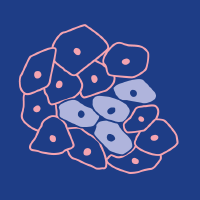Topic Menu
► Topic MenuTopic Editors


Recent Advances in Anticancer Strategies

Topic Information
Dear Colleagues,
The topic "Recent Advances in Anticancer Strategies" aims to provide an overview of the latest developments in the field of cancer treatment. Cancer remains one of the leading causes of death worldwide, and researchers have been working to develop more effective and targeted treatments to improve outcomes for patients. The existing cancer therapies suffer from severe side effects and drug resistance, leading to an increase in cancer incidence and mortality worldwide. Hence, there is a pressing need to develop and discover novel therapeutic strategies that can offer more effective and less toxic treatment options for cancer patients. Novel anticancer approaches are being developed, which can selectively identify and eliminate cancerous cells while minimizing harm to healthy tissues, unlike traditional therapies. For this topic, we welcome original articles and comprehensive reviews that showcase the latest advances in novel anticancer strategies with reduced toxicity and improved therapeutic indices. These articles can suggest potential prospects for optimizing cancer therapies with significant clinical value in the near future. We encourage submissions that focus on the development and validation of various anticancer approaches, including ligand-/receptor-based targeting, controlled drug delivery, gene therapy, gene delivery, immunotherapy, targeted anticancer prodrugs and conjugates (such as photoactivatable caged prodrugs, ADEPT, ADAPT and ADCs), magnetic and ultrasound-mediated drug targeting, and cancer stem cell therapy, as well as strategies that explore the targeting of signaling cascades and the tumor microenvironment. Overall, the topic aims at providing recent advances in anticancer strategies, highlighting the potential impact of these new approaches on cancer treatment and patient outcomes. We eagerly anticipate your valuable contribution to this exciting topic.
Dr. Hassan Bousbaa
Dr. Zhiwei Hu
Topic Editors
Keywords
- anticancer strategies
- cancer treatment
- chemotherapy
- radiation therapy
- immunotherapy
- targeted therapy
- gene therapy
- stem cell therapy
- precision medicine
- combination therapy
- biomarkers
- drug delivery
- nanoparticles
- CAR-T cell therapy
- checkpoint inhibitors
- epigenetic therapy
- oncolytic viruses
- artificial intelligence in cancer treatment
Participating Journals
| Journal Name | Impact Factor | CiteScore | Launched Year | First Decision (median) | APC |
|---|---|---|---|---|---|

Biomedicines
|
3.9 | 5.2 | 2013 | 14.6 Days | CHF 2600 |

Cancers
|
4.5 | 8.0 | 2009 | 17.4 Days | CHF 2900 |

Future Pharmacology
|
- | - | 2021 | 19.2 Days | CHF 1000 |

Pharmaceutics
|
4.9 | 7.9 | 2009 | 15.5 Days | CHF 2900 |

Current Oncology
|
2.8 | 3.3 | 1994 | 19.8 Days | CHF 2200 |

Preprints.org is a multidisciplinary platform offering a preprint service designed to facilitate the early sharing of your research. It supports and empowers your research journey from the very beginning.
MDPI Topics is collaborating with Preprints.org and has established a direct connection between MDPI journals and the platform. Authors are encouraged to take advantage of this opportunity by posting their preprints at Preprints.org prior to publication:
- Share your research immediately: disseminate your ideas prior to publication and establish priority for your work.
- Safeguard your intellectual contribution: Protect your ideas with a time-stamped preprint that serves as proof of your research timeline.
- Boost visibility and impact: Increase the reach and influence of your research by making it accessible to a global audience.
- Gain early feedback: Receive valuable input and insights from peers before submitting to a journal.
- Ensure broad indexing: Web of Science (Preprint Citation Index), Google Scholar, Crossref, SHARE, PrePubMed, Scilit and Europe PMC.

